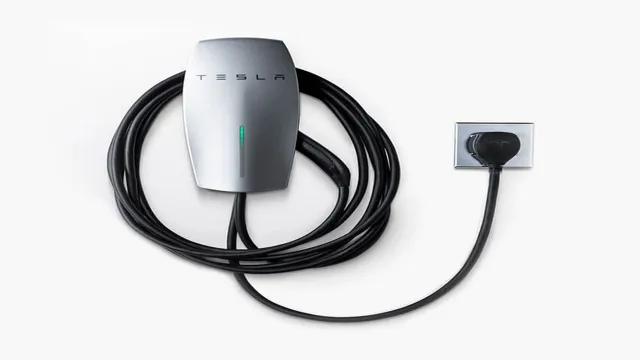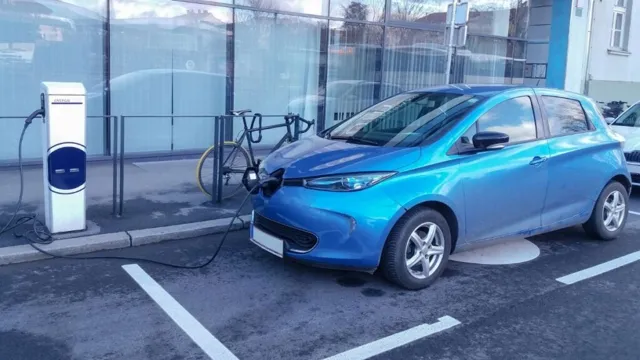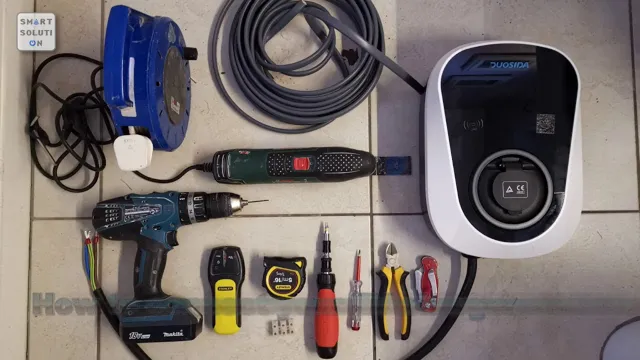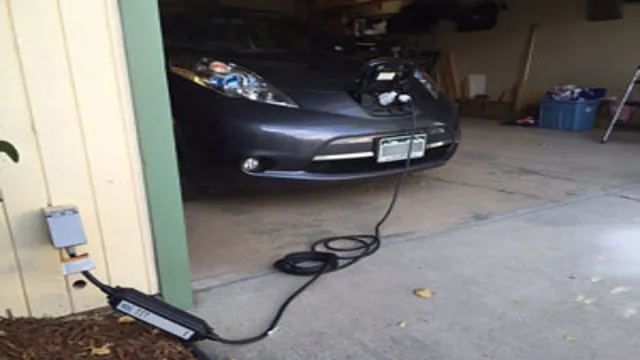Electric Cars and Outlet Compatibility: Everything You Need to Know
Electric Cars and Regular Outlets: How Suitable Are They Together? Electric cars have been steadily gaining popularity over the years because of their eco-friendliness and cost-effectiveness. With the rise of electric cars, however, an important question arises – can they be charged using regular outlets? While it might seem like a simple fix to charge your electric car using the same outlet you use for your TV or laptop, it’s not as straightforward as it seems. Depending on the vehicle and the charging rate, charging an electric car can take anywhere from a few hours to over a day using a standard, 120-volt outlet.
This poses some challenges for those who own electric cars, especially if they don’t have access to a dedicated charging station. However, with the right planning and understanding, it is possible to charge electric cars using regular outlets. In this blog post, we’ll explore the benefits and challenges of charging electric cars using regular outlets.
We’ll also take a closer look at the technical limitations of charging an electric car with a standard outlet and provide some tips on how to do it safely and effectively. At the end of this post, you’ll have a comprehensive understanding of whether or not it’s feasible to charge your electric car using a regular outlet.
Can you plug an electric car in?
If you’re wondering whether you can plug your electric vehicle (EV) into a regular outlet, the answer is yes, you can do it. However, there are some caveats you must be aware of before doing so. Plugging an electric car into a regular outlet means you’ll be using what is known as Level 1 charging, where the charging rate is limited to around 2 to 5 miles of range per hour.
It’s not a quick charging option, but it is a cost-effective and convenient way to plug in your EV. Nonetheless, if you need to charge your EV more quickly, using a Level 2 charging station is highly recommended. Keep in mind that, when you plug an EV into a regular outlet, you need to make sure your home’s electrical system can handle the load.
Consider hiring an electrician to assess whether your home’s wiring and electrical panel can handle the additional demand of charging an electric car. Overall, you can plug an electric car into a regular outlet, but it’s important to understand how it works and how to do it safely.
Yes, but with limitations
Yes, but with limitations. You can plug an electric car into an electric socket by using a special adapter. However, this isn’t the most efficient or safe way to charge your vehicle.
For starters, a regular electric socket doesn’t have the necessary capacity to charge an electric car quickly. Plus, it can be dangerous to plug in and can overheat your electrical wiring. That’s why it’s best to use a dedicated EV charging station, which is specifically designed to provide the power your car needs while charging it safely and quickly.
These stations can be installed at your home, office, or public areas, and they come in several different power levels to fit your car’s battery capacity. With the right equipment, charging your electric car can be just as easy as filling up a gas tank, without the environmental footprint.
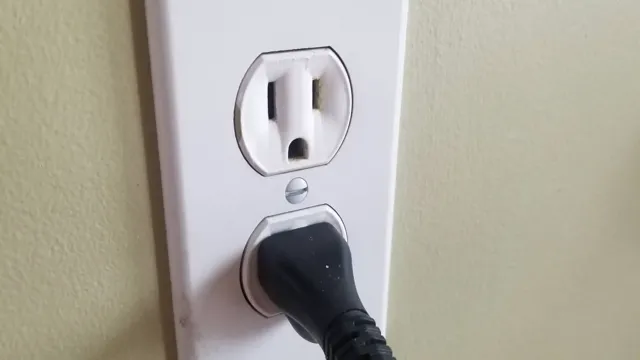
Understanding Electric Car Chargers
One of the most common questions that people have about electric cars is whether they can be charged using a regular outlet. The short answer is yes, but it’s not the ideal scenario. Electric cars can be charged using a regular 120-volt outlet, but the charging time will be significantly longer than using a dedicated electric car charger.
When you use a regular outlet, you are limited to a charging rate of 1-2 miles per hour. This means that it could take an entire day (or longer) to fully charge your electric car. Additionally, using a regular outlet can put a strain on your home’s electrical system and increase the risk of an electrical fire.
If you are serious about electric cars, you should invest in a Level 2 electric car charger for faster and safer charging. With a Level 2 charger, you can charge your car up to 25 miles per hour, significantly reducing the charging time. Overall, while you can charge your electric car using a regular outlet, it’s not the most ideal solution for regular and efficient charging.
Level 1 vs. Level 2 Chargers
Electric Car Chargers When it comes to electric car chargers, there are two main types: Level 1 and Level Level 1 chargers are typically included when you purchase your electric car, and they plug into a standard 120-volt household outlet. While they are convenient for occasional use, they are much slower than Level 2 chargers, taking up to 20 hours to fully charge your vehicle.
Level 2 chargers, on the other hand, require a dedicated 240-volt electrical circuit, which may require professional installation. But, they can fully charge your car in as little as four hours, making them a more practical choice for daily use. Additionally, many public charging stations offer Level 2 charging, allowing you to quickly and efficiently charge your car while on the go.
Ultimately, your choice of charger will depend on your specific needs and usage patterns. If you primarily drive short distances and can charge overnight, a Level 1 charger may work just fine. But, for those who need to charge more quickly, a Level 2 charger may be the better choice.
By understanding the differences between these two types of chargers, you can make an informed decision when it comes to powering up your electric car.
How Long it Takes to Charge With a Regular Outlet
Electric car owners understand the crucial role that electric vehicle (EV) charging plays in the overall EV experience. There are different levels and types of chargers, but a regular outlet in your home or office – a level 1 charger – can suffice for charging an EV. It is the slowest charging option, taking anywhere between 8 to 20 hours to charge an EV fully, depending on its battery size, amperage, and other factors.
A level 1 charger delivers only 4 to 4 kW power output, which is ideal for overnight charging.
However, it might not be suitable for long road trips, daily high-mileage commutes, or emergencies. Nonetheless, a regular outlet is a convenient charging option for EV users who have access to it. It is an affordable and convenient way to power up your electric car, providing easy access to electric charging for normal daily usage.
Possible Solutions to Charging Time
Electric car chargers are an essential component of any electric car charging infrastructure, and they play a vital role in reducing charging time. There are three types of electric car chargers: Level 1, Level 2 and DC fast chargers. Level 1 chargers use a standard household outlet of 120 volts and can fully charge an electric car in 8 to 12 hours.
Level 2 chargers, on the other hand, use a 240-volt outlet and can charge an electric car in 4 to 6 hours. DC fast chargers, which can charge electric cars up to 80% capacity in 30 minutes, are the fastest type of chargers available. To further reduce charging time, manufacturers are developing advanced charging technologies, such as wireless charging and fast-charging stations.
By investing in these technologies, we can make electric cars a more convenient and practical alternative to traditional vehicles.
Important Considerations
If you’re wondering whether you can plug an electric car into a regular outlet, there are a few important considerations to keep in mind. First, you need to know the voltage and amperage requirements of your electric vehicle. Most EVs require a 240-volt charging station for optimal charging speed, but they can also be charged using a standard 120-volt outlet, although it can take much longer.
However, it’s important to note that many older homes may not have the necessary electrical infrastructure to accommodate a 240-volt charging station. Additionally, using a standard outlet could potentially overload the circuit and cause a fire. Therefore, it’s crucial to consult with a licensed electrician to ensure your charging setup meets the necessary safety requirements.
Ultimately, while it is possible to charge your electric car using a regular outlet, it’s not the most efficient or sustainable solution, and you should consider investing in a dedicated charging station for optimal performance.
Outlets and Electrical Codes
Outlets and Electrical Codes When it comes to installing electrical outlets, it’s important to understand electrical codes to ensure safety and compliance. The National Electrical Code (NEC) sets the standards for electrical safety in the United States. One important consideration is the type of outlet to be installed.
Ground fault circuit interrupter (GFCI) outlets are required in certain areas of a home, such as bathrooms, kitchens, and outdoor spaces to prevent electrical shock. It’s also important to consider the appropriate voltage and amperage for your needs to prevent overloading and potential fire hazards. In addition, it’s crucial to hire a licensed electrician to ensure the installation is done correctly and up to code.
By following electrical codes and consulting with a professional, you can ensure the safety of your home and loved ones.
Safety hazards and Precautions
When it comes to safety hazards and precautions, there are a lot of important considerations to keep in mind to avoid accidents and injuries. One of the most essential precautions is to always be aware of your surroundings and potential risks. Whether you are working in an industrial environment or simply walking on a busy street, it is important to look out for hazards like slippery floors, loose equipment, or uneven surfaces.
Additionally, it is important to use the appropriate safety equipment and gear for the task at hand, like helmets and safety goggles. It is also crucial to stay alert and focused, avoid distractions, and follow safety rules and protocols. Remember, safety is everyone’s responsibility and taking the necessary precautions can prevent accidents and save lives.
So, always be cautious and stay safe!
Conclusion
In conclusion, while it is technically possible to plug an electric car into a regular household outlet, it may not be the most efficient option. Just like you wouldn’t want to charge your phone on a flip phone charger, you won’t get the optimal performance from your electric vehicle without a specially designated charging station. So, go ahead and take your electric car out for a spin, but make sure you give it the charge it deserves.
“
FAQs
What kind of outlet do I need to charge an electric car?
Depending on the car and charging rate, you may be able to use a regular 120-volt outlet, but most electric cars require a 240-volt outlet for faster charging.
Can I plug my electric car into a regular household outlet?
Yes, you can technically plug your electric car into a regular household outlet, but it will charge very slowly and may not provide enough power to keep up with your driving needs.
How long does it take to charge an electric car using a regular household outlet?
Charging times for electric cars vary greatly depending on the size of the battery and the charging rate, but using a regular household outlet can take anywhere from 8 to 20 hours to fully charge an electric car.
Do I need to have a special electrical system installed to charge my electric car at home?
It depends on your home’s electrical system and the charging requirements of your electric car. Some electric cars may require a dedicated circuit or electrical panel, while others may be able to use existing outlets. It’s best to consult with a licensed electrician to determine your needs.


